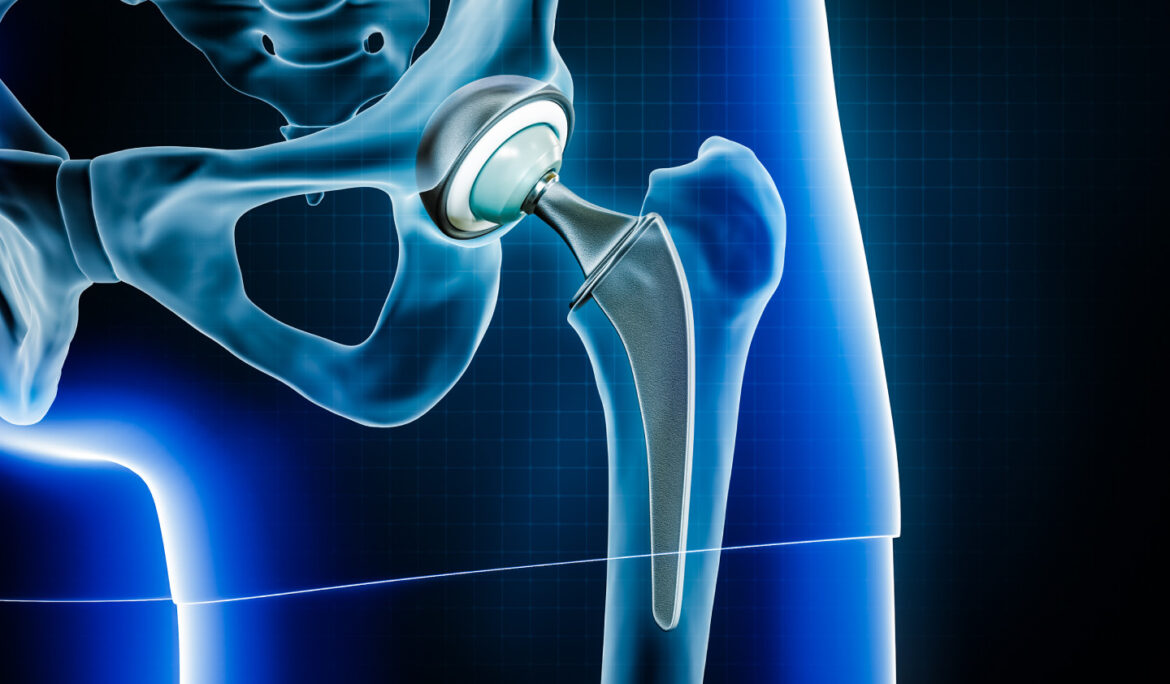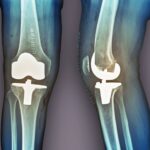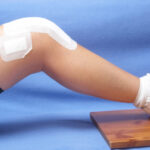Arthritis and other painful illnesses make it difficult to even stand, walk, or participate in daily activities. Hip replacement surgery is performed when all non-surgery based treatment options failed to give pain relief for arthritis. These include medicine, therapy, or the use of a cane or walker. The new hip joint should reduce pain and make walking simpler.
Total hip replacement implants are the prosthetic components that your surgeon employs to replace your damaged ball-and-socket hip joint. In this guide by a hip surgeon in Delhi, users will learn the complications that can arise during hip replacement surgery.
Complications of hip replacement
Hip replacement is usually considered safe. However, some complications can arise during or after the surgery. They are:
Blood clots
Two types of blood clots can develop during hip replacement surgery. They are:
- Deep Vein Thrombosis (DVT): Deep vein thrombosis is a blood clot in a vein deep within your body, typically in your leg. Get treatment quickly away to avoid catastrophic problems. Medicines, compression stockings, and surgery are all options for treatment.
- Pulmonary embolism (PE): A pulmonary embolism (PE) is a blood clot that forms in a blood vessel within the body (usually in the leg). It then travels to a lung artery and abruptly stops blood flow. Prompt therapy to dissolve the clot minimises the risk of mortality. This is possible by the use of blood thinners, medicines, or surgery. Compression stockings and regular exercise can help prevent clots from developing in the first place.
Generally surgeons give guidelines to ensure no blood clot can be formed after the hip replacement surgery.
Hip dislocation
Occasionally, a new hip joint will dislocate and come out of its socket. It affects about 2% of individuals and is most likely to occur during the recovery period when your hip is still healing. If you have a dislocated hip, you will require further surgery to repair it.
Stiffness
Another problem is joint stiffness. Scarring causes the soft tissues surrounding your hip replacement to stiffen, decreasing joint motion. The severity of your arthritis and the complexity of your operation will influence your chances of developing this complication. If you are at risk of joint stiffening, medication or radiation therapy can help prevent it.
Wear and tear
Hip replacements can wear out and require replacement, sometimes prematurely. Your amount of activity, as well as the bearing surface of your implant, will affect wear and tear.
Hard-on-soft surfaces, such as ceramic-on-plastic and metal-on-plastic implants, generate more friction and wear out faster than hard-on-hard bearing surfaces. Ceramic-on-ceramic hip replacements can endure indefinitely if implanted in the proper position.
Minimal or excessive swelling
Some swelling is usual after any operation. However, in rare circumstances, it can last for longer than anticipated. Approximately 6% of individuals will experience long-term oedema, which can continue for up to 18 months. Usually, this is due to inadequate circulation.
Swelling might also be indicative of a deep vein thrombosis or infection. It is necessary to discuss your symptoms with your surgeon and get quick medical attention if you are worried.
Unequal leg length
Other long-term risks of hip replacement surgery include mobility limits and a change in leg length (Leg Length Discrepancy). Almost all patients experience mobility limits during their recuperation. Another danger to consider is leg length discrepancy, frequently managed with insoles.
Neurovascular damage
Less than 1% of individuals suffer nerve and vascular damage after surgery. Damage to your sciatic nerve, a main nerve that goes down the back of the thigh, might result in a ‘foot drop’, which means you can’t lift the front half of your foot. General nerve injury can also occur, causing neurogenic pain that can be permanent.
There are several vital blood arteries surrounding your hip joint. If they are damaged during surgery, they can bleed profusely, resulting in substantial postoperative oedema and the need for a blood transfusion.
Get safe hip replacement surgery in Delhi from Dr. Simon Thomas
Are you considering hip replacement surgery? By scheduling your surgery at DDr. Simon Thomas’s clinic, you get certain that you will receive safe and quality care.
Why Should You Choose Dr Simon Thomas for Hip Replacement Surgery?
- Expert Surgeons: Our highly qualified and experienced orthopaedic surgeons have done several successful hip replacement surgeries, restoring patients’ mobility and quality of life.
- Personalised Care: We take the time to learn your requirements and concerns before developing personalised treatment strategies.
- Advanced Techniques: We use the latest surgical techniques and technology to provide safe and effective surgery reducing complications in hip replacement surgery.
Don’t let hip pain hold you back anymore. Schedule a visit now to begin living a pain-free, active lifestyle.













